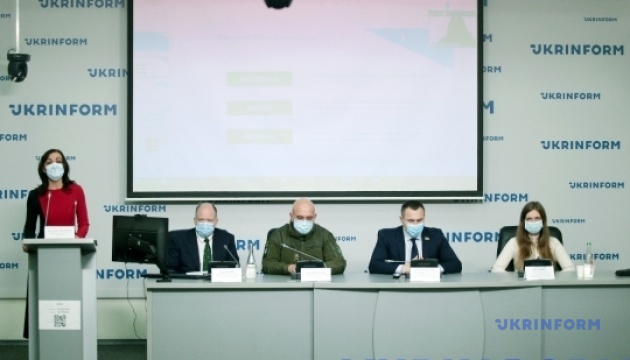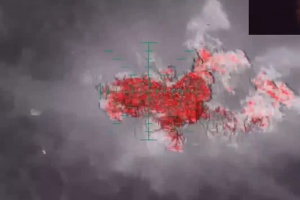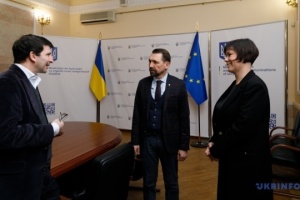
Transparency International’s Global GDI Index: Ukraine has High Risk of Defence Corruption
Dr. Karolina MacLachlan, Regional Programme Manager for Europe of Transparency International Defence & Security said that the Index includes 86 countries, and the current wave includes assessment of 15 countries from Central and Eastern Europe. She informed that ‘more than half of the countries assessed in the region face a high risk of corruption in their defence and security sectors. Average score for the region is 48/100. While Azerbaijan’s score of just 15 places it in the ‘critical’ risk category, high levels of transparency see Latvia fare the best in the region’.
MacLachlan added that every country is assessed for the governance and corruption risks in defence sectors in five risk categories: political, financial, personnel, operations and procurement. According to the Index methodology after the experts’ assessment, preliminary findings are sent out to corresponding state bodies for feedback. ‘So far, we haven't received any feedback from Ukraine’s state bodies, so we hope that we will be able to receive it now, when the Index has been officially published’.
Operational risks are the highest in Ukraine’s defence sector. The score for Operations is only 8 from 100. Currently Ukraine’s servicemen are widely engaged in NATO and UN missions on three continents, and also defend Ukraine’s integrity in Donbas, - said NAKO Board Member Andrew Bain. He stressed that for the servicemen’s morale it’s absolutely harmful to see corruption inside the system. Bain who has a strong military background and has lived for many years in Ukraine said that ‘although now servicemen don’t need to pay bribes to get a higher rank as it was during Yanukovich times, we still see that people have to pay bribes to get a better position or get a post in military operations’.
Bain mentioned that one of the most positive moments mentioned by the authors of the Index is the adoption of the Law on Defence Procurement which can considerably increase transparency and decrease corruption risks of defence procurement. But he stressed that implementation of the law has stalled.
Roman Kostenko, Secretary of the Parliamentary Defence Committee agreed that implementation of the Law on Defence Procurement is a major problem. He informed that today, on 11 December, the Defence Committee considered the issue of how to postpone implementation of the Law by half a year. The Law had to come into force on 1 January 2021 but it will not be so because secondary legislation was not developed in time.
‘Taking into consideration the human resources problem, we do have many problems with the implementation of the laws that Verkhovna Rada adopts. The Ministry of Defence and the Ministry of Strategic Industries didn’t implement the Law on Defence Procurement, so the Parliament now has to adopt another law and implement it. If the Law were in force already on 1 January, we would be able to say that there is a corruption prevention mechanism in defence procurement’, said Kostenko.
Deputy Secretary of the National Defence and Security Council Sergiy Kryvonos said that ‘it is important to ensure that the law functions and is executed properly. We need time to understand how it functions (edit. – the Law on Defence Procurement). Then the MPs can consider the feedback prepared by the Ministry of Defence or the Cabinet of Ministers. About half a year is needed to understand all the problems’.
TI Ukraine’s Head of Department of International Relations Anastasiya Kozlovtseva spoke about the weak system of whistleblowers’ protection, in particular in the defence sector. ‘The law on whistleblowers was adopted back in 2014, and was updated by the new Parliament. However, the Constitutional Court of Ukraine cancelled selected powers of the National Agency of Corruption Prevention, including the ones related to addresses by whistleblowers. Yesterday the Committee supported draft law 4470 which partly renews the powers. However, even when the Law was in force, we didn’t see the results, we didn't see the addresses by them, we didn’t see that whistleblowers were protected. So here they need to work more on implementation, too’.
Adviser to the Embassy of Lithuania Andrius Vaivada shared Lithuania’s ‘recipe for success’. The Republic of Lithuania now has low risks of corruption in 3 categories out of 5. He mentioned that ‘integration to NATO and the EU has helped a lot, mainly due to implementation of approaches and standards. One of the most important elements is parliamentary control over the defence and security sector’. Vaivada assured the audience of Lithuania’s will to support Ukraine in increasing parliamentary control over the sector.



